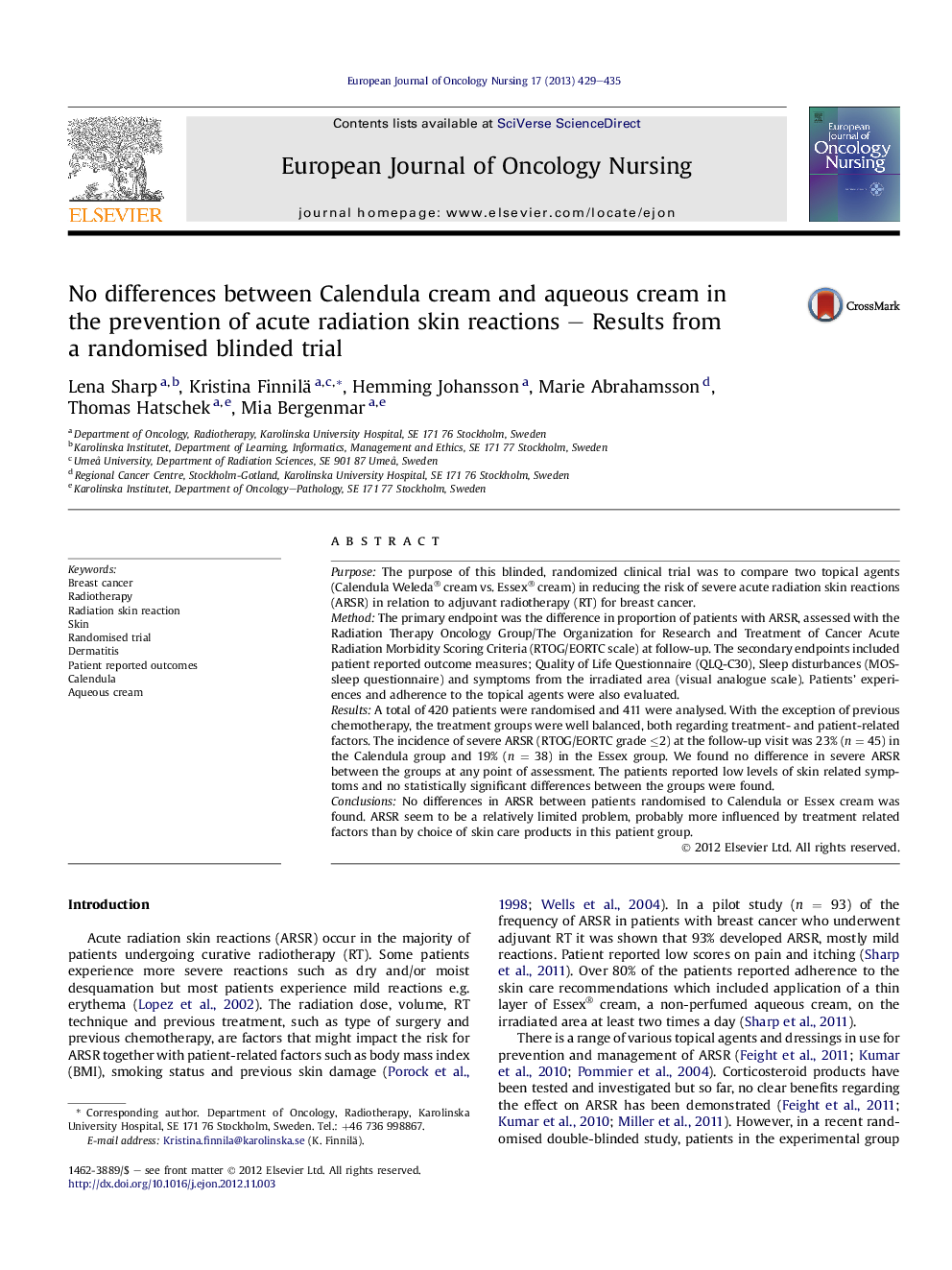| Article ID | Journal | Published Year | Pages | File Type |
|---|---|---|---|---|
| 2649474 | European Journal of Oncology Nursing | 2013 | 7 Pages |
PurposeThe purpose of this blinded, randomized clinical trial was to compare two topical agents (Calendula Weleda® cream vs. Essex® cream) in reducing the risk of severe acute radiation skin reactions (ARSR) in relation to adjuvant radiotherapy (RT) for breast cancer.MethodThe primary endpoint was the difference in proportion of patients with ARSR, assessed with the Radiation Therapy Oncology Group/The Organization for Research and Treatment of Cancer Acute Radiation Morbidity Scoring Criteria (RTOG/EORTC scale) at follow-up. The secondary endpoints included patient reported outcome measures; Quality of Life Questionnaire (QLQ-C30), Sleep disturbances (MOS-sleep questionnaire) and symptoms from the irradiated area (visual analogue scale). Patients' experiences and adherence to the topical agents were also evaluated.ResultsA total of 420 patients were randomised and 411 were analysed. With the exception of previous chemotherapy, the treatment groups were well balanced, both regarding treatment- and patient-related factors. The incidence of severe ARSR (RTOG/EORTC grade ≤2) at the follow-up visit was 23% (n = 45) in the Calendula group and 19% (n = 38) in the Essex group. We found no difference in severe ARSR between the groups at any point of assessment. The patients reported low levels of skin related symptoms and no statistically significant differences between the groups were found.ConclusionsNo differences in ARSR between patients randomised to Calendula or Essex cream was found. ARSR seem to be a relatively limited problem, probably more influenced by treatment related factors than by choice of skin care products in this patient group.
